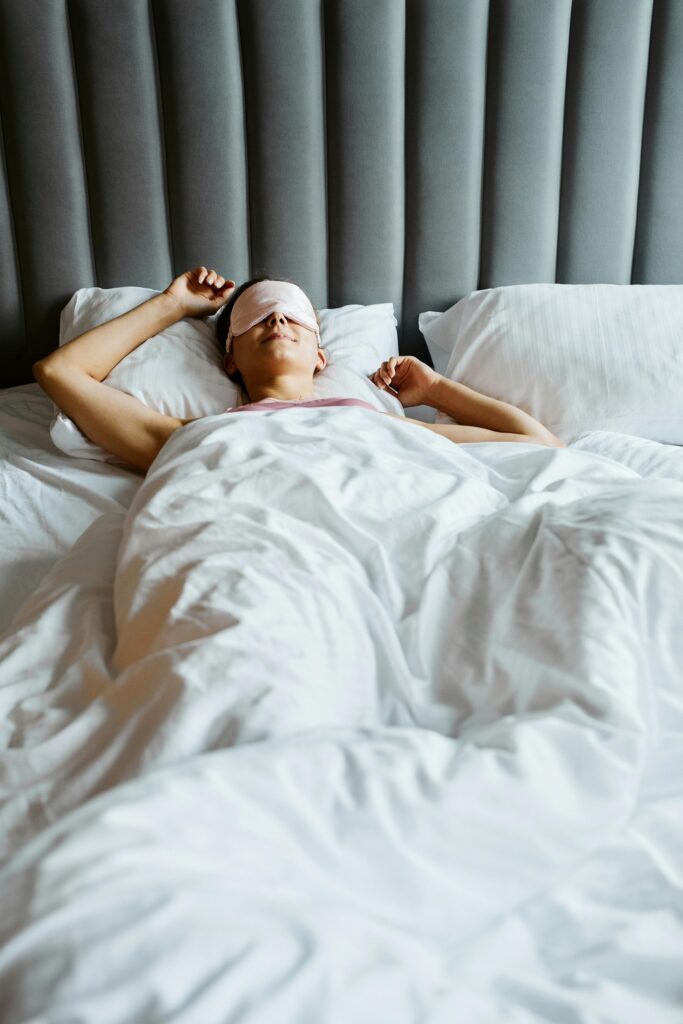Ah, sleep—that glorious, elusive nectar of life that we all crave but can’t quite seem to hold onto, especially as the years tick by. When you’re a child, you can sleep through thunderstorms, fireworks, and possibly even the apocalypse. But fast forward a few decades, and suddenly, the sound of a cat sneezing three streets over has you wide awake at 3 a.m., questioning all your life choices. Yes, sleep quality changes with age, and it’s one of those cruel cosmic jokes that gets funnier the older you get (spoiler: it’s not actually funny). Let’s dive into why this happens and, more importantly, what you can do about it.
The Young and the Restful: Sleep in Your Youth
When you’re young, sleep quality is akin to that of a luxury mattress commercial. Your head hits the pillow, and BAM! Eight hours of blissful, uninterrupted slumber. Your body bounces back from all-nighters with the resilience of a superhero, and you can function on four hours of sleep and a cup of questionable coffee without batting an eye.
But here’s the catch: you probably didn’t appreciate it. You stayed up late, binged TV shows, and pulled all-nighters for exams or questionable social activities. Youth is wasted on the young, and so, apparently, is quality sleep.
Enter Adulthood: The Sleep Quality Tug-of-War
Welcome to your 30s and 40s, where your body starts whispering, “Hey, remember those wild nights? Payback time!” Sleep quality begins to take a nosedive, and suddenly, your mattress becomes the scapegoat for all your problems. Tossing and turning replaces deep REM cycles, and you wake up feeling like you’ve been hit by a lorry, even though you technically slept for seven hours.
Why does this happen? Hormones, stress, and lifestyle changes all conspire against you. Cortisol, the “stress hormone,” loves to make guest appearances at night, ensuring your brain replays embarrassing moments from 2003 instead of letting you sleep. Oh, and don’t forget the blue light from all those devices you swear you’ll stop using before bed (but never do).
The Golden Years: Sleep, Interrupted
By the time you hit your 60s and beyond, sleep quality starts resembling a bad Wi-Fi connection: patchy, frustrating, and prone to cutting out just when you’re getting comfortable. Older adults tend to experience lighter, shorter sleep cycles. Deep sleep, the kind that makes you feel refreshed and ready to conquer the day, becomes rarer than a unicorn sighting.
Part of this decline is due to changes in your body’s internal clock, also known as your circadian rhythm. This clock becomes less synchronised with the day-night cycle, leading to earlier bedtimes and, unfortunately, earlier wake-up times. Add in the increased likelihood of health issues, medications, and the frequent need to use the loo at night, and it’s no wonder sleep quality takes a hit.
Join Our Mailing List
Register now to get our hints and tips newsletter directly to your inbox
What to Do About It: Reclaiming Your Sleep Quality
Now, before you resign yourself to a lifetime of groggy mornings and mid-afternoon naps, let’s talk solutions. Improving sleep quality as you age isn’t impossible; it just requires a bit more effort (and perhaps fewer late-night Netflix binges).
1. Stick to a Consistent Sleep Schedule
Your body loves routine. Going to bed and waking up at the same time every day—yes, even on weekends—can help regulate your internal clock. Think of it as setting a curfew for your circadian rhythm, but without the teenage rebellion.
2. Create a Sleep Sanctuary
Your bedroom should be a haven of tranquillity, not a multi-functional space where you answer emails, watch TV, and occasionally sleep. Invest in blackout curtains, keep the room cool, and banish all electronic devices. And no, your phone doesn’t count as a ‘necessary exception.’
3. Mind Your Diet
What you eat and drink can have a significant impact on sleep quality. Caffeine and alcohol are two of the biggest culprits. Sure, that evening glass of wine feels relaxing, but it’s actually sabotaging your deep sleep. Opt for sleep-friendly snacks like bananas, almonds, or a warm mug of chamomile tea instead.
4. Exercise Regularly
Regular physical activity can do wonders for your sleep quality. Just make sure you’re not doing an intense workout right before bed unless you want to be lying awake, counting how many burpees you did.
5. Embrace Relaxation Techniques
Stress is a sleep killer, so finding ways to relax before bed is crucial. Try meditation, deep breathing exercises, or even progressive muscle relaxation. If all else fails, counting sheep is always an option, though you might end up naming them and getting emotionally attached.
6. Address Underlying Health Issues
Sometimes, poor sleep quality is a symptom of an underlying health problem, like sleep apnoea or restless leg syndrome. If you’re consistently struggling with sleep, it might be time to have a chat with your GP. There’s no shame in seeking professional help—even superheroes need sidekicks.
7. Use Technology Wisely
While your phone might be the enemy of sleep, some tech can actually help improve it. Consider investing in a white noise machine, a smart sleep tracker, or even a sunrise alarm clock to wake you up gently instead of jolting you out of bed like an air raid siren.
The Bright Side of Sleep Changes
Despite all the challenges, there’s a silver lining to the evolution of sleep quality with age. Older adults often require less total sleep than their younger counterparts, which means you can reclaim those extra hours to read, garden, or become the reigning champion of your local bridge club. Plus, with the right adjustments, you can still enjoy restful nights and energised mornings.
Conclusion: Sleep Quality Is Worth Fighting For
Sleep quality may change as you age, but it doesn’t have to be a losing battle. By understanding the factors that affect your sleep and implementing some of the strategies we’ve discussed, you can turn the tide in your favour. So, whether you’re in your 20s, 60s, or somewhere in between, don’t underestimate the power of a good night’s sleep. After all, even superheroes need their beauty rest.




